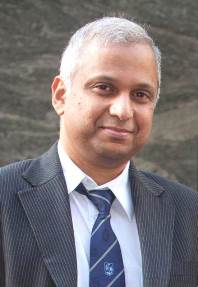Data Science and AI in Life Sciences
New approaches to enhance healthcare, diagnose patients early and accurately, and to deliver next generation precision medical treatments are at the basis of our data science and AI activity in the medical sciences.
AI supports our research into record linkage and underpins a significant number of different projects focusing on a spectrum of outcomes, including childhood neurodevelopment and multimorbidity. We have world leading research into malaria surveillance and diagnosis where AI plays a significant role in understanding insect-borne disease spread, as well as in medical imaging research.
Data Science and AI also play a key role in public health and policy research, including a role in understanding healthcare monitoring and wearable technology, long-term condition management and mental health. Additionally, there is a wealth of expertise in clinical trial management, chronic disease epidemiology, virus-host molecular interactions, genomics and machine learning for immunology.
If you are interested in speaking to someone in regards to any of these activities, or related areas of interest, please contact our Programme Director directly, or alternatively get in touch via the Centre email address (cdsai@glasgow.ac.uk).
Programme Director: Professor Sandosh Padmanabhan
Pontecorvo Chair of Pharmacogenomics, School of Cardiovascular & Metabolic Health
We asked Professor Padmanabhan to answer a few questions about his background with data science and AI and his hopes for the future of the Centre for Data Science & AI.
Can you tell us about your background in Data Science and AI, and how your experiences have shaped your approach to the programme you'll be directing?
I have a strong background in data science, AI, and health informatics, with a focus on applying these methodologies to cardiovascular genomics, pharmacogenomics, and precision medicine. My expertise spans genomics, clinical trials, and population health research, integrating AI for risk stratification, drug-gene interaction modelling, and digital biomarkers. I have led the development of Trusted Research Environments (TREs) to enable AI-driven research while ensuring robust data governance. My experience across academia, the NHS, regulatory bodies, and industry has given me a broad perspective on embedding AI into healthcare. My approach to directing the AI in Health and Life Sciences programme will emphasize real-world impact, data-centric innovation, interdisciplinary collaboration, and workforce development to advance AI adoption in biomedical research and clinical practice.
What are your key goals and aspirations for the programme you're leading, and what do you hope and/or envision the Centre's impact on the wider University will be?
My goal is to establish the University of Glasgow as a leader in AI-driven biomedical research and healthcare innovation by creating an ecosystem where AI, data science, and health research converge to enhance patient care, accelerate discovery, and drive economic growth. A key priority is developing AI and health data science training programmes for clinicians, researchers, and students while promoting responsible AI adoption in healthcare. This programme will enhance Glasgow’s leadership in national AI healthcare initiatives, foster interdisciplinary AI research across medicine, veterinary, and life sciences, and strengthen connections with engineering, computer science and other disciplines to broaden AI’s impact beyond healthcare. Ultimately, it will establish the University as a global hub for AI-driven biomedical innovation and precision medicine.

Programme Director: Professor Philippe Schyns
Professor of Psychology (School of Psychology & Neuroscience), Dean of Research Technology (MVLS College Senior Management)
We asked Professor Schyns to answer a few questions about his background with data science and AI and his hopes for the future of the Centre for Data Science & AI.
Can you tell us about your background in Data Science and AI, and how your experiences have shaped your approach to the programme you'll be directing?
My background in data science and artificial intelligence stems from a career-long effort to understand how intelligent systems—both biological and artificial—perceive, represent, and reason about their environment. Trained across visual perception, cognitive science, neuroscience, and AI, I have consistently worked at the interface of data-rich empirical methods and computational modelling. From early neural network models to recent work aligning brain representations and computations with deep neural networks, my lab has developed innovative tools—including generative models, reverse-correlation methods, and information-theoretic analyses—to extract structured computational meaning from high-dimensional behavioural and neural data. This body of work has contributed to interpretable AI, human-centered SocialAI computing, and feature-based models of visual perception, bridging neuroscience, behaviour, and AI around the common theme of computation.
What are your key goals and aspirations for the programme you're leading, and what do you hope and/or envision the Centre's impact on the wider University will be?
I see data science not simply as a toolbox, but as a new scientific language—one that reshapes how we frame hypotheses, build models, and connect traditionally separate disciplines. As the life sciences confront problems of growing complexity, fluency in this language will be essential—not just to deploy algorithms, but to ask better, more transformative and insight-rich questions. My goal is to make this language accessible to all who seek to shape the science of the future.


